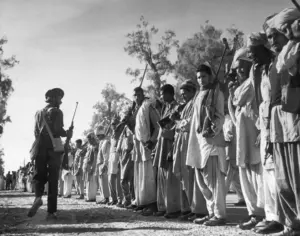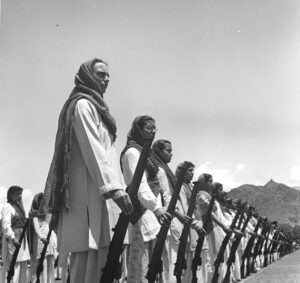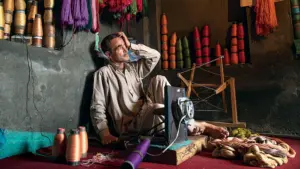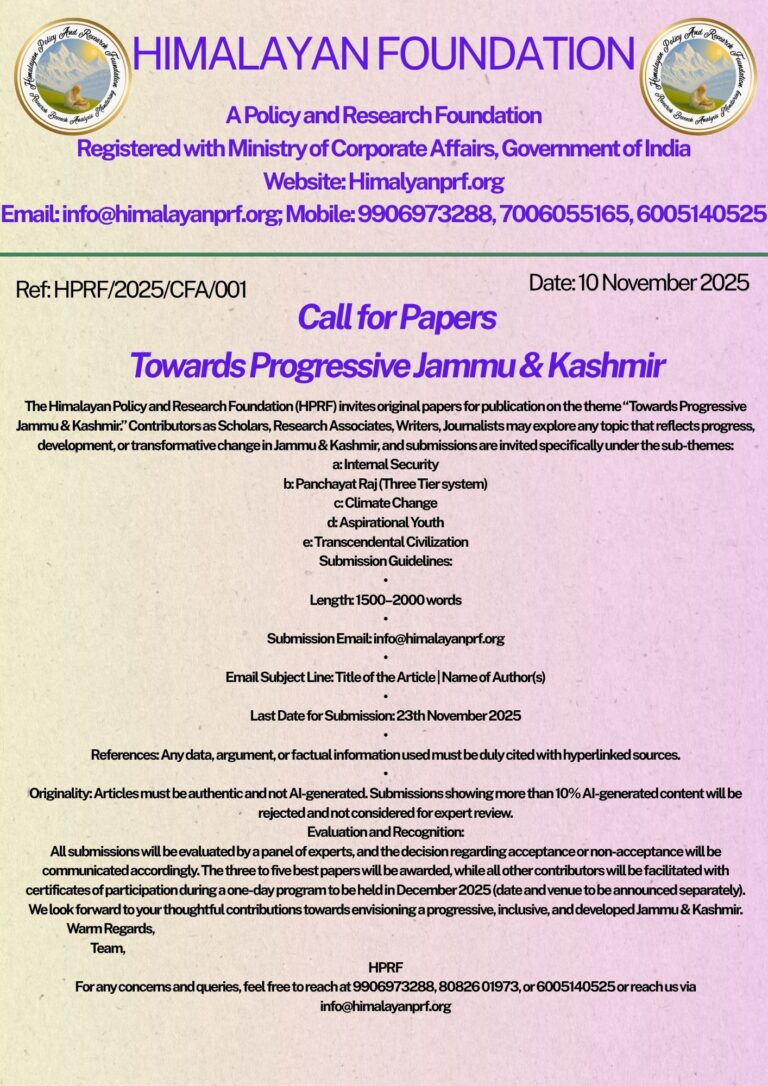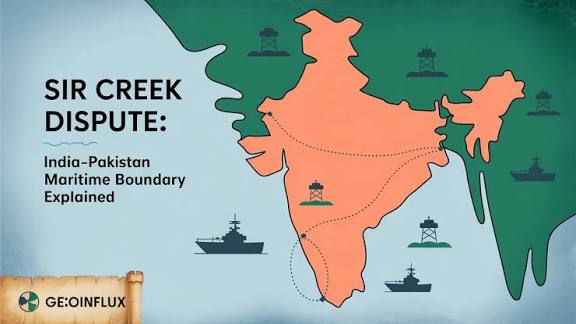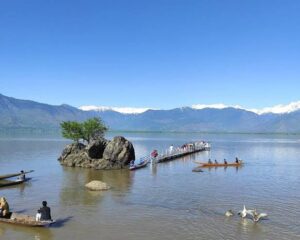A case study of local resilience and rural industry in Pulwama, Kashmir
When you enter Oukhoo, a small village a few kilometres south of Pulwama town, nothing immediately suggests that this is a place of national industrial importance. There are no big signboards, no tall chimneys, no clusters of offices or warehouses that typically mark industrial zones. Instead, what you notice is a quiet hum-wood being cut, trucks being loaded, workers walking in and out of factory gates with bundles of slats on their shoulders. The smell of poplar wood, freshly sawn and slightly wet, lingers in the air. It is only when you stay a while, listen to the conversations, and walk through the inner lanes that you begin to understand what this village does, and what it means to the rest of the country.
Oukhoo, now widely referred to as India’s “Pencil Village,” supplies over 90% of India’s pencil slats-those thin wooden strips that wrap around the graphite core of pencils. These slats are not the final product, but they are the necessary beginning. From the hills of Himachal to the classrooms of Kerala, pencils that find their way into the hands of millions of children likely passed through this village, even if no one remembers to say so.
The scale of production here is startling, not because it operates on grand machinery, but because it runs almost entirely without institutional support. There are currently about 17 to 20 slat-manufacturing units functioning in Oukhoo and surrounding areas like Lassipora. Most are modest in size, locally run, and built from the ground up by families that turned to this trade in the 1990s and early 2000s. Many of them started with old sawmills, repurposed and reimagined to serve a market that they understood not through consultants or feasibility studies, but through instinct, trial, and community learning.
As a researcher I spent several days in Oukhoo in the spring of 2025-speaking to workers, owners, families, and even schoolchildren. What emerged was a story not of sudden success or miraculous entrepreneurship, but of incremental hard work, communal adaptation, and a shared vision of local self-reliance.
The production process begins with poplar wood, particularly the Russian poplar, which grows fast, is lightweight, and has a fine grain-ideal for pencil slats. Farmers across Pulwama cultivate poplar alongside apples, mustard, and vegetables. Logs are brought into the factory yards, sliced into large planks using band saws, then reduced into precise slats through cutting machines. These slats are either sun-dried or kiln-dried, depending on the season, and then sent for manual sorting. This is where women come in- groups of 20 to 30 women, seated on floor mats or wooden platforms, sorting through bundles of slats, identifying deformities, packing usable ones into 800-piece bundles.
I met Nusrat, a lady in her mid-thirties, who had been working in one of these units for the past four years. She lives two lanes away from the factory, and comes in every day by 9 am.
She earns around Rs. 500 per day, which, while modest, allows her to pay her child’s school fee and manage household expenses without borrowing.
“Pehle main sirf doosron par dependent thi,” she said, her fingers still moving over a bundle. “Ab kam se kam apne paise se guzara ho jata hai.” There was no bitterness in her voice-only a quiet clarity.
What sets Oukhoo apart is not just its output but its labour ethic and community involvement. Almost every household here is connected to slat production in some way-either through direct employment, transport, wood supply, or machinery maintenance. Local youth prefer this work to casual construction labour or fruit picking, since it offers year-round employment. During one of my walks, I saw boys unloading poplar logs from a small truck, laughing, tossing logs like bundles of hay. They knew what they were doing. Many had dropped out of school after Class 10 or 12, but they were not idle, not indifferent. They were contributing to a village economy that has kept them from leaving home in search of uncertain futures.
The units also employ a significant number of migrant workers, mostly from Bihar and Uttar Pradesh, especially for the heavier tasks-loading, trimming, cutting. They stay inside the factory compounds in temporary barracks. Most had been coming here for several years and had built personal ties with local families. One worker, Akhlaq from Muzaffarpur, told me,
“Yahan kaam mushkil hai, lekin izzat milti hai. Samaan time par milta hai, aur rozgaar barson se chal raha hai.”
Yet for all this effort, the village’s economic potential is still throttled by systemic neglect. The first and foremost issue is power supply. Every factory in Oukhoo runs on diesel generators. The power lines are unreliable, voltage fluctuations are frequent, and scheduled cuts are not communicated. Diesel costs have surged, and most units spend Rs. 18,000 to Rs. 25,000 daily just to keep the machines running. Several owners told me that the cost of energy alone eats up 30-40% of their revenue, making it difficult to invest in scaling or quality upgrades. Requests for a dedicated industrial feeder have been pending for years.
Another obstacle is the lack of transport infrastructure. The internal roads leading to Oukhoo are poorly maintained, especially in winter months. Transporting finished slats to Jammu or Gujarat adds further cost, and no freight subsidies are provided under existing MSME schemes. While the UDYAM registration portal exists, most local entrepreneurs either don’t know how to navigate it or receive little assistance from district officials. A few factory owners mentioned attending training sessions conducted by the District Industries Centre (DIC), but outcomes remained cosmetic.
The third constraint- and perhaps the most existential-is policy uncertainty around poplar cultivation. A few years ago, rumours about poplar trees interfering with air traffic led to nervousness among growers and factory owners. Though no blanket ban has been enforced, there remains a lingering fear that sudden environmental or forestry regulations could disrupt
the raw material supply. This is compounded by the fact that no legal framework specifically supports or protects poplar-based industries, even though they contribute significantly to the rural economy.
And yet, despite all this, Oukhoo is not a village of complaints. It is a village of suggestions. Every person I spoke to had ideas-not of protest, but of possibility. Factory owners want to move up the value chain. They want to start making finished pencils, not just raw slats. Some units have already begun experimenting with coating technology and exploring partnerships with packaging firms. They want technical training centres, not just schemes on paper. They want shared storage units, proper roads, easier access to credit, and branding support.
One young entrepreneur Irfan Ahmad, barely 34, told me,
“Slat banate banate 20 saal ho gaye. Ab hum chahte hain ki ‘Oukhoo Pencil’ bhi market mein aaye. Apne naam se.”
His words were not arrogant, but deeply grounded. He wasn’t asking for foreign investment or giant SEZs. He just wanted a level playing field.
A local schoolteacher I met added another dimension to the story,
“Children here grow up seeing their families making pencils. But they don’t always know where it ends up. We need to make sure that they also grow up seeing what they can become-engineers, designers, entrepreneurs. The pencil shouldn’t just be an object of export. It should also become a symbol of aspiration.”
The pandemic years were especially hard on Oukhoo. With schools shut across the country, demand for pencils collapsed. Some units shut down, while others operated at reduced capacity. But even in that period, many factory owners kept paying partial wages, housed migrant workers, and did not default on local payments.
“Yeh hamara kaam hai, par yeh hamari zimmedari bhi hai,” said one elderly factory owner (name withheld). That sense of shared duty, of community-driven resilience, is what makes Oukhoo enviable.
The government’s recent recognition-calling Pulwama the “Pencil District” and acknowledging Oukhoo on national radio- has not gone unnoticed. People are grateful. But gratitude cannot replace policy. What Oukhoo now needs is not praise, but partnership.
Some concrete steps that could transform this village include:
1. Creating a micro-industrial cluster with common utilities (power, water, storage).
2. Ensuring uninterrupted power supply via a dedicated industrial feeder.
3. Facilitating credit through cooperative banks with low interest rates and minimal paperwork.
4. Launching branding and marketing support to allow “Oukhoo Slats” or “Kashmir Pencils” to gain national visibility.
5. Training programs under Skill India that specifically target woodcraft, packaging, and finishing technologies.
6. Digital and Legal Help Desk: Many factory owners don’t know how to register under UDYAM, use GST, or apply for small industry benefits. A local help desk must be set up and staffed.
7. Village Brand Identity: Support Oukhoo to build its own brand-whether for slats or finished pencils. Add value where the work actually happens.
8. District-Level Redressal: A single-window grievance office in Pulwama that handles industrial issues-power cuts, roadblocks, subsidy delays, or policy bottlenecks.
9. Link with Universities: Let students from local colleges and technical institutes come to Oukhoo for live projects. Let them help improve production systems, design, marketing.
10. Common Facility Space: A single space with shared machines for finishing, polishing, drying, and packaging-so that small units don’t suffer just because they can’t afford expensive equipment on their own.
11. Poplar Wood Bank: A regulated wood depot at the village level can stabilise the raw material supply, ensure fair prices for farmers, and reduce hoarding or market manipulation.
12. Women’s Working Groups: Recognise women as more than informal help. Form proper cooperatives, offer them benefits, health cover, and institutional identity under existing government schemes.
To walk through Oukhoo is to walk through an economy shaped by hand, not by fiat. It is to witness what rural India can become when left to itself-and what it can truly achieve when backed sincerely. The slats produced here don’t just carry graphite; they carry stories. Of women reclaiming agency. Of young men refusing to migrate. Of families building futures one pencil at a time.
This village is not asking for rescue. It is asking to be recognised as what it already is-a hub of rural manufacturing excellence. If policy can match pace with the people, Oukhoo won’t just be the pencil village of India. It could be a blueprint for sustainable, inclusive, and home-grown industrialisation.

